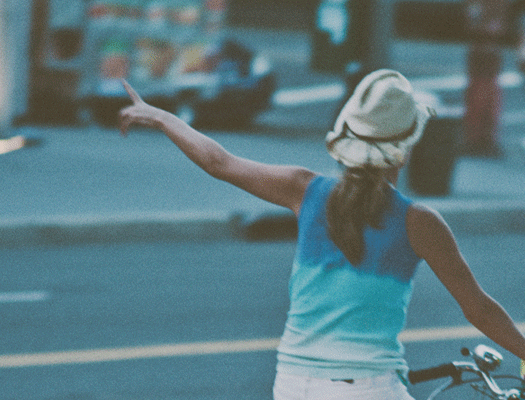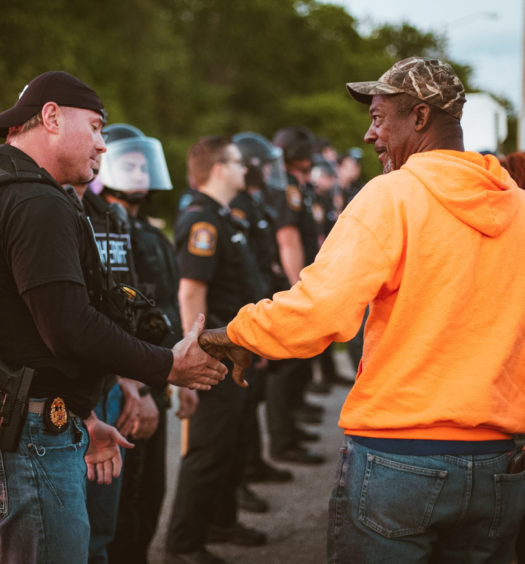Breaking Bread: A Refugee’s Journey

Photo by Fares Nimri
Since the dawn of earth, people have been in motion. The refugee crisis is now internationally recognized as the largest displacement crisis of our time. Since we are all part of the human family, we should know by now that what happens in the streets of Aleppo echoes in the streets of Beirut, Paris, and London. It’s not just people that are displaced; it’s unaddressed world issues that are crossing borders. Sadly, it seems that most have decided to turn a blind eye or to close borders. One of our most shameful moment in history is unfolding, live.
Straight out of university, I was considered for a position at the refugee board of Canada. I lasted a very short time, simply because as our supervisor perfectly said on our first day of training: “in here, you will hear stories that will break your heart.” It didn’t break it; it shattered it. It also shattered my vision of the world as a young professional. I entered the workforce in my field (international relations) with a sour reality check.
Today, with a few years of experience under my belt, I am gasping at the situation. This was unacceptable in early 2000, but it has now become the norm. How did we manage to tolerate such a catastrophic situation?
Syrian children and families have witnessed unspeakable violence and are now living in intolerable conditions sometimes with no humanitarian aid.
More than five million Syrians have fled the country as refugees, and over 6 million are displaced within the country. Half of those affected are children. Half…. this means that millions of children are living in limbo and without proper care. There are also refugees fleeing persecution and poverty in Africa, South Asia, and the Middle East.
The promiscuity and abject living conditions in camps breed chaos: men, women, and children trapped in abysmal conditions (deaths, suicide attempts, people engaging in self-harm, exposure to abuse and sexual violence). In recent years, we bared witness to the Brexit: a dream of European unity, broken by a referendum. The U.K. regained control over immigration at the expense of losing privileged access to the EU single market. Most importantly, the Brexit has once again created a sense of separateness. All hopes of a united European response to the refugee crisis seem to have evaporated.
Last spring, while furthering my research on the refugee crisis, I met Chief Care Officer, Letizia Calcamo. She created an initiative that is worthy of being duplicated in other cities.
In August 2016, the 33-year-old Parisian woman, (a press attaché at Maison Margiela fashion house), launched “Va faire cuire un oeuf”, a foundation that started delivering meals to asylum seekers in the French capital. “Va faire cuire un oeuf” literally means “go cook an egg” but is a spin on the famed French expression “Va te faire cuire un oeuf” a gentler, French way to say “Go f…. yourself”.
It all started with her morning commute to the office a couple of summers ago. Her office is located near a refugee camp. She would drive by every morning becoming concerned as she gradually observed the camp getting bigger.
“I wanted to know more, who are these people? How did they end up here in the heart of Paris?”
She says in her soft-spoken voice. Letizia Calcamo is a petite brunette, but as the interview goes along, her passion and drive tend to make her look taller as she raises her voice and passionately shares her story.
“One morning, I saw a group of people distributing food, and I was immediately compelled, I knew I could do something, I knew I had to do something… I stopped, and I met a group of women that had created a Facebook page to collect and distribute food in camps.
I first started dropping food for the distribution; then I found another group that was providing relief for people in exile, I joined the group and started getting involved collecting and distributing food”.
Inspired to do more, she then launched “Va cuire un oeuf”. The name of the initiative is a direct reflection of the refugees’ conditions.
“At first, we would bring very elaborate breakfasts and meals, but most of the time, people would ask for hard boiled eggs, I did not understand at first… but then one young man explained, hard-boiled eggs are easy to carry, it can fit in our pockets, we can eat them at any given time during the day, it’s nutritious…”
Letizia saw an opportunity to create a collective action; she contacted a friend, restauranteur Marc Grossman (aka “Bob”), owner of Bob’s Bake Shop in Paris.
The idea was simple and the equation too: good intentions + one communal table + a vegetarian meal = raising funds to provide food and more for refugees.
After the success of their first event, “Va faire cuire un oeuf” has continued to partner with Bob’s Bake Shop to host charity dinners in support of refugees. The foundation has expanded since the first dinner, it still provides meals, but it also strives to fight precarious living conditions by financing various actions on the ground. It provides aid to refugees in need: distribution of fresh food, drinking water, hygiene products and warm clothes. The project also promotes human and social integration and connection, by offering linguistic, cultural and sports activities.
Given Letizia’s profession, the first “Va faire cuire un oeuf” event was greatly supported by her peers and her team. The fashion industry rallying to support her and the cause.
Recently on March 15, 2018, another food-related aid-project was born in Paris. Refettorio Paris is the latest opening from chef Massimo Bottura’s non-profit organization Food for Soul, whose goal is to fight food waste and hunger with the help of his chef friends around the world. The tables are waited by volunteers.
After Rio de Janeiro, Milan, Modena, Bologna, London and Paris, Bottura revealed that momentum is growing around the world with discussions currently underway to expand the model to cities across North America, including Montreal, Toronto, San Francisco, Boston, and Merida, Mexico, along with New York and Detroit.
The famed American restaurateur Guy Fieri said that “Cooking is all about people. Food is maybe the only universal thing that really has the power to bring everyone together. No matter what culture, everywhere around the world, people get together to eat”
Amid turmoil, what if food was a golden thread? A thread that connects all human beings. If we choose to embrace that common thread, embracing our need for nourishment and our need for togetherness, we perhaps could bravely forge a new path. A new path which is needed today more than ever before.
The refugee crisis whether political or environmental needs to be addressed while we still can. Legal and policy responses to environmental and political induced migration are instrumental in forging that path. Current data points that we will see more environmental refugees in the future. Refugees are not fleeing by choice; they are fleeing because their well-being, safety or secure livelihood is being compromised.
Our common thread is found in several community-led initiatives that set off ripple effects around the globe. Though sometimes appearing small in scale, they create rivers of hope for the lost or exiled and a much-needed new start or new perspective to many.
In the words of Argentine-Chilean-American novelist and human rights activist, Ariel Dorfman : “We live in the age of the refugee, the age of the exile”, let’s all hope that we are also living in the age of empathy, the age of caring, nurturing each other through food and policies that protect and honor humanity.
FROM THE EDITOR
At Conscious, we feature powerful stories about global initiatives, innovation, community development, social impact and more. You can read more stories like this and connect with a growing community of global leaders when you join as a member.



